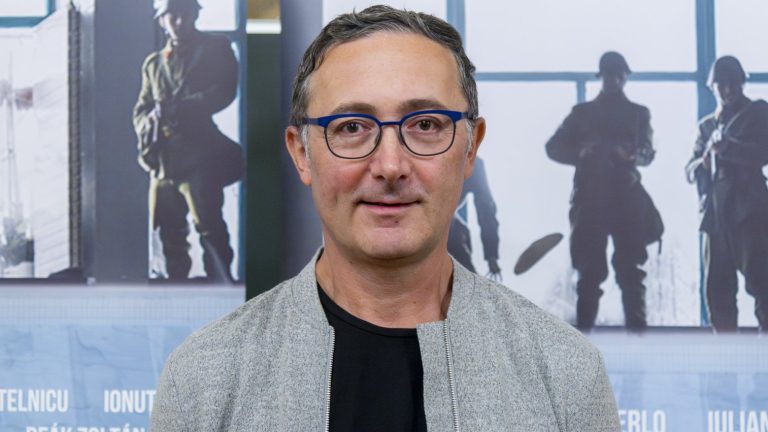In 1989 in Sibiu, with just two unidentified shoots, the peaceful protests against the armed forces of the state turned into a chaotic, bloody and slightly surreal slice of Romanian history. Gossips and fake news fled, the army took side with the protesters and arrested 500 people of the police, Securitate or anybody they thought suspicious. These people were held captive in the empty pool of the school, where some of them spent weeks on end in the winter of 1989/90. These events became the basis of the film, Freedom / Libertate’89 – Nagyszeben, which premiered in Miskolc at the Cinefest, where we got the chance to ask the director, Tudor Giurgiu.
– How do you find the story?
– By surprise, I mean it was not in mind to make a film about this historical moment. It just happened that the producer, Oana Giurgiu found the story, she gave it to me and I said, Wow, that’s so bizarre and so grotesque. It felt like a Greek tragedy. You see these events and certain kinds of relations developing between the 500 people in the pool.
They are forced to live all together even though there are enemies. They don’t know what’s happening outside. They are afraid. They don’t have access to food or water. They have this idea that the water is poisoned. So I mean all these elements, I thought it’s a movie there, so I thought it’s great at least tackling the subject.
– Have you met the survivors and the people from the pool?
– Yes, it was a long process because I’ve spent around two years, two years and a half to meet as many of them as I could. It was not easy. It was complicated even to find a list with everybody who was there in the pool. I’ve tried, for example, to find photos because I was sure people, like journalists or foreign journalists were taking photos.
– Yes, I would like to ask them whether there were foreign journalists as we can see in the movie.
– They were, but I found photos just with them being detained. I mean with „the terrorists” being detained in the sports hall, not in the pool. And I’m pretty sure somebody may be from the army or Securitate just take the photos out from the files. All those years were difficult because I, in a way, talked with people from the pool or with civilians or from the army, initially I had to somehow feel and understand their trauma. So it was a process which really, from an emotional perspective, took a toll on me.
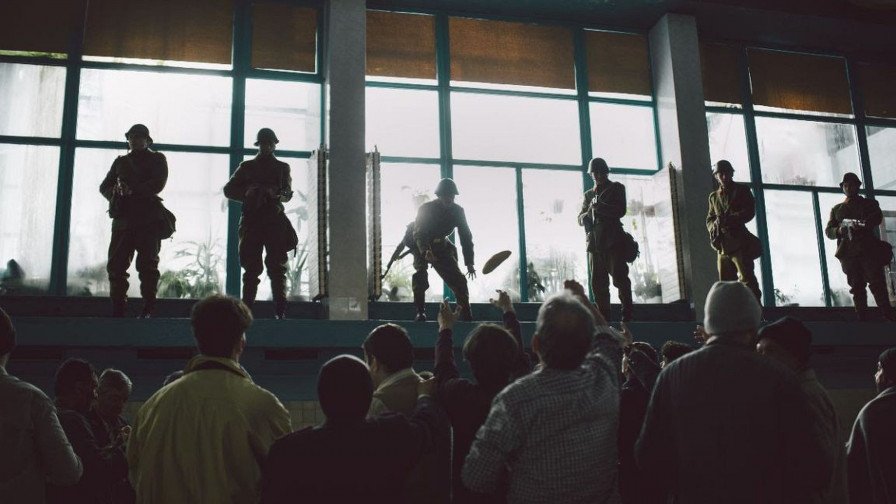
I took them all on me and it was not very easy. But then, at a certain moment, I’ve tried to understand also the fact that yes, a lot of them were wounded or suffering, but were they like positive heroes? Because, as one of the characters is saying in the movie: „I didn’t kill anybody, but I also beat people. I beat civilians.” So I thought, let’s look a bit at this moral perspective of the film because we do not deal with positive heroes like in the American films. They are people who were maybe against the normal people, the real people. They were beating them because they were listening to Free Europe Radio or so. So I think the level of moral responsibility is very complex, and that’s why I liked this kind of power game happening in the pool. There were conflicts. I like the fact that the audience would not know at any moment who they should trust. And I thought this would be a key element for the film.
– Yes, and you don’t give us any back stories.
– No I don’t.
– You don’t know whether the man with the moustache is a good guy, a family man, as you see him, or he was just like the others? They were colleagues with the soldiers as well. So it’s a little bit like Zimbardo’s prison experiments when they switch.
– Yeah. That’s why I thought it’s bizarre. I found it so strange because there were neighbours and they were even, they were playing sports together. They knew each other, how you could know each other and suddenly one day I’m accusing my friends of being terrorists and I’m 100% sure that as an army official that these guys were, they wanted to kill our people. How can human beings change in a day in this kind of conflict? How you can become like a torturer when you were a normal person one day before.
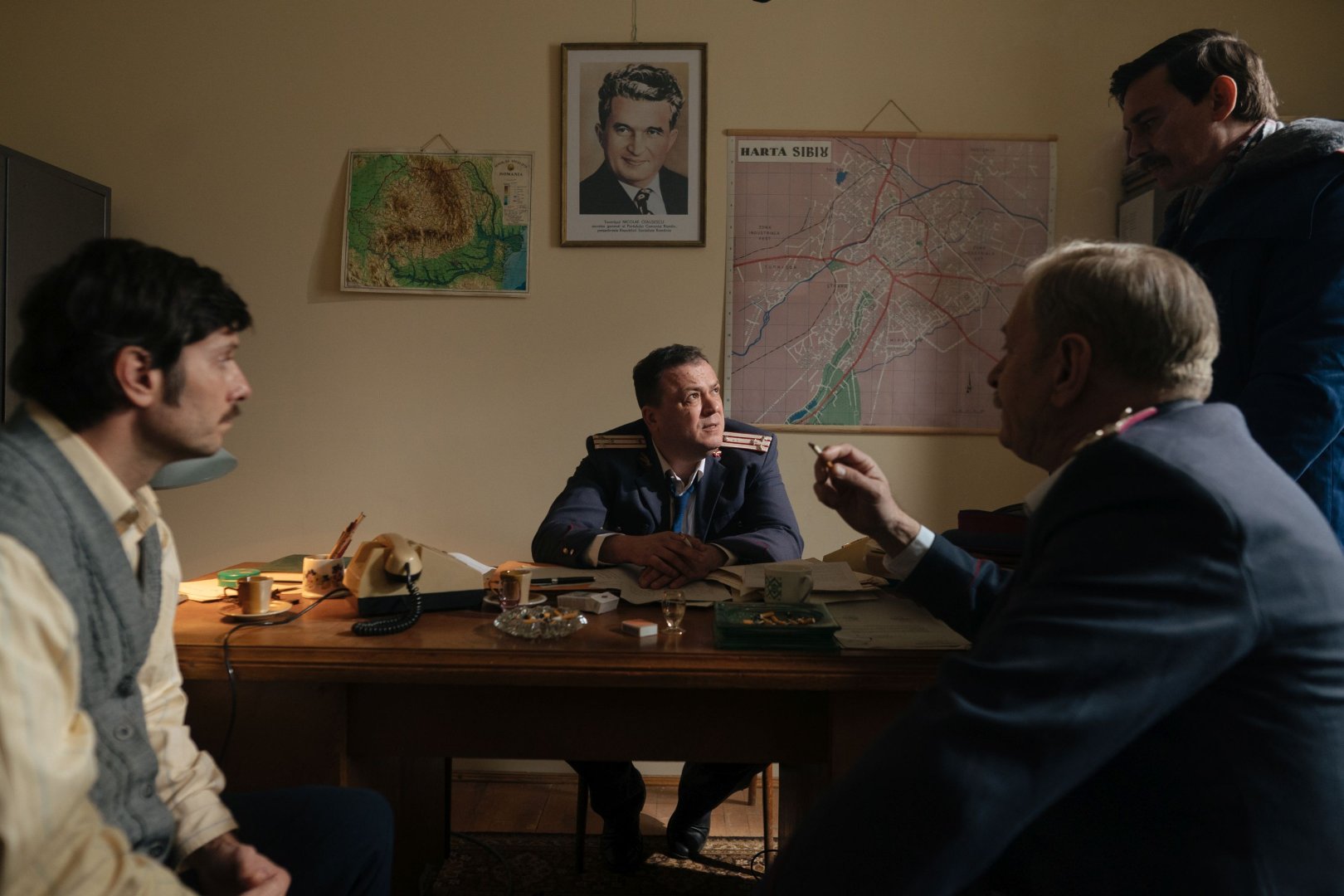
I’ve asked myself all these questions when I’ve analysed and when I read a lot about the script. I thought I should find good actors to be able to play these different sides of characters. It was like a big challenge to find a group, like a homogeneous and solid group of actors who could be believable.
– Are there real people behind the characters?
– There are many, many characters who are inspired by real people, especially the army commander. It is, I think, 100% based on the real commander. He was declared innocent even though I feel that he was the one responsible for a big part of the chaos. He still lives in Sibiu, a bit reluctant to go public. But there were some others as well, like the couple whose child had been killed in the car. I talked to them and the whole episode was shocking for me. The man needed psychiatric treatment after the events. There were other people from the Militia, I’ve tried to keep even some names or just change the names a bit.
But what I’ve decided at the end is that I would use fiction. The main character, Viorel Stanese, is purely fictional. I’ve tried to use, of course, elements from different real stories. Somehow I felt better when I knew I had to deal with a fictional character because at a certain moment the reality was so powerful, so strong it limited my options in how I would develop the story.
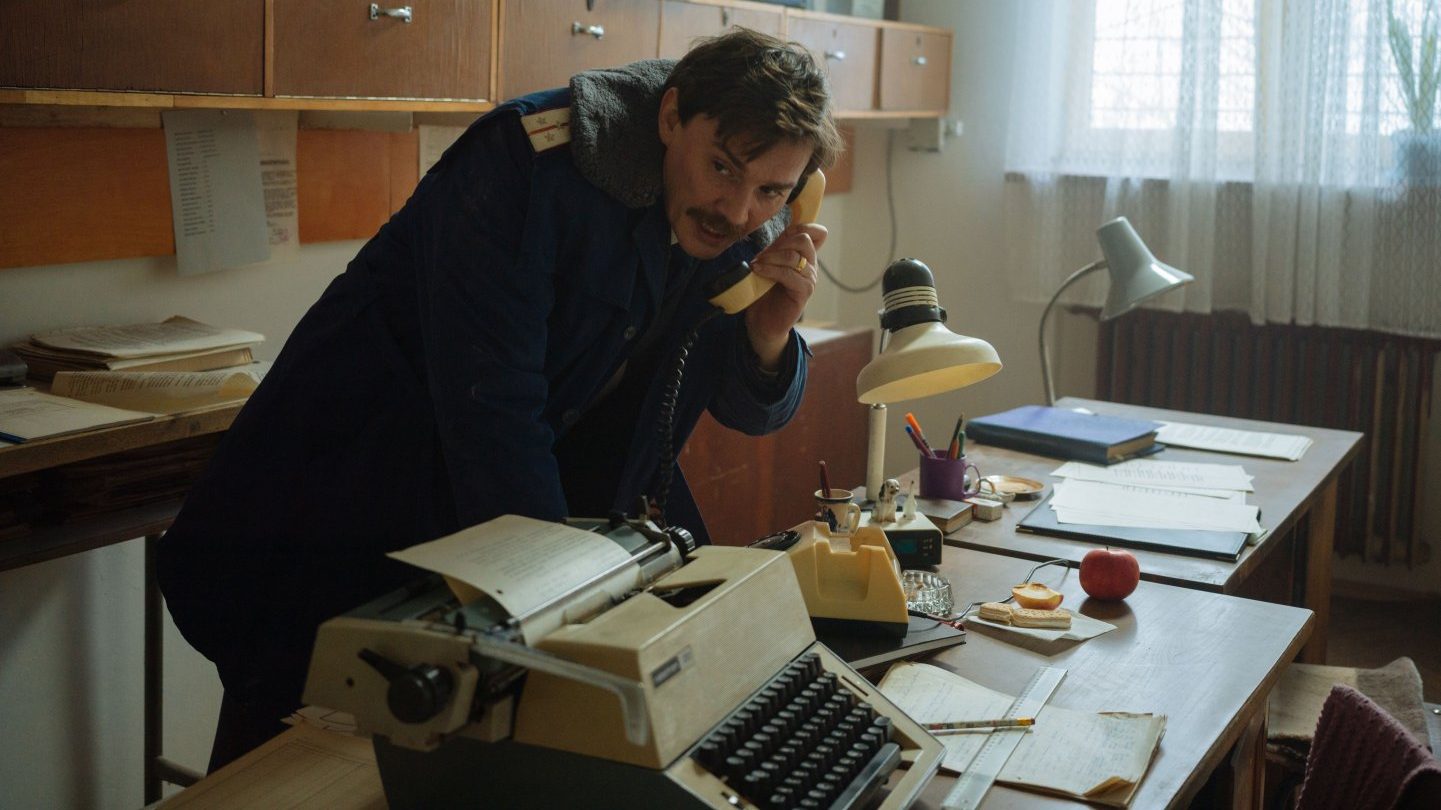
So at a certain moment I said okay, now we stop the research! Let’s imagine, let’s see what is! Because if you ask now the members of the Militia say, “We didn’t shoot! We didn’t shoot!” Yeah, but you had the guns in your hands when you were on the streets. And they said, “Oh, we were holding it vertically!” but in that chaos it could happen that somebody would aim in the direction of a civilian.
– You have mentioned at the premier that the young boy from the pool is real as well.
– I met him. For him it was like the most horrible moment in his life. He still didn’t want to remember. I realised that with these normal people suddenly being put in hell, the only way for them to leave and to grow as individuals is to forget. So I’ve tried to extract lots of info. I thought, “Oh, he’s the youngest. He should remember.” Not like he didn’t want to remember, but I think the mindset of these people was like, “I don’t want to go back in the past.”
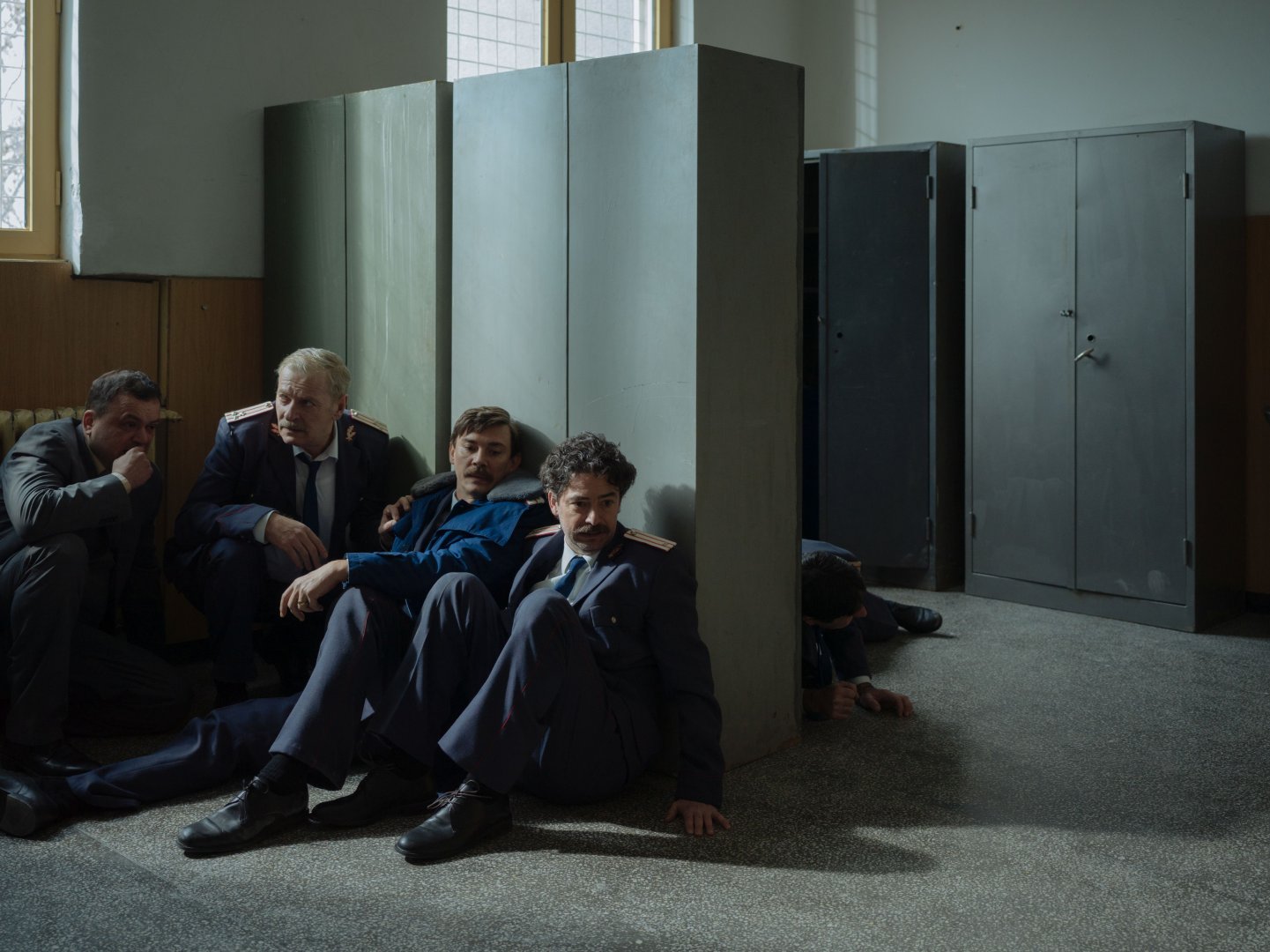
So he told me: “I was playing. I found a pistol on the street. I use it in my garage. I created a hole. There was a noise. The neighbours came. They reported me to the army and they immediately put me in the pool. And for him spending two or three weeks in that kind of environment, being lonely and with the smell and everything it was horrible.
– It’s a historic movie, but some elements feel very, very relevant. For example fake news, gossip and things like this, and it shows how dangerous they can be.
– It’s what we live in now. I’m glad you say this because in theory it’s a 1989 period movie but look at the power of news today, especially coming from social media. How they can alter and make people act crazy. And that’s what happened back then. I was not a kid, I was 17. And I remember all over the country there were rumours that the water was poisoned. “Don’t drink the water! Don’t get out! There is a yellow car with terrorist shooting! No, no, no, there is another!” We were just watching TV and we were believing everything came out of TV. We realised years later that actually public television was heavily used for propaganda, as a manipulation tool. And since then, the public TV didn’t manage to recoup and to change its reputation. It’s still being affected by what happened in those days.
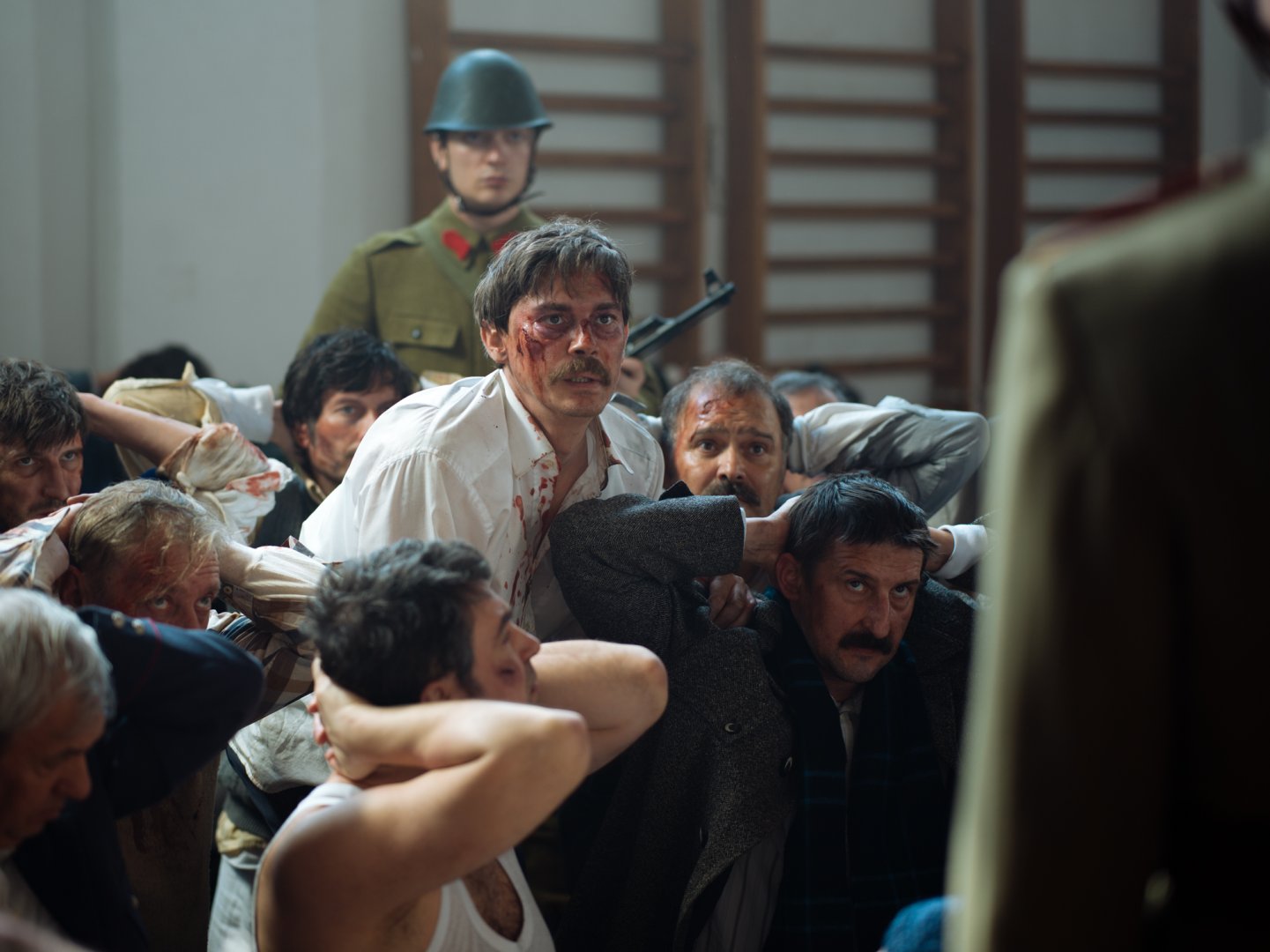
So I think this movie at least teaches us the incredible power of manipulation and how easily people can turned against each other. It’s not just TV but social media is democratising things but there is false information as well, and concepts, and the conspiracy theories. Things like this, which are just the words, can be dangerous. So I feel it’s very up to date.
– And it’s very easy to switch sides. When you think you are on the rebellion’s side and you suddenly find yourself in the pool…
– Yeah, this is the question all the time: Where is the best positioning for me as a human being? So you immediately adapt. And it’s exactly what the army commander was telling me. And even though I don’t find the guy in real life very likeable, I agreed with him saying that it was a war. “What do you expect? Did we teach at the military academy how to behave in war? No, it was a war. And I didn’t know who would win. If Ceaușescu’s people will maybe get the power back or not.” So for them, for these people, I’m pretty sure it was a life and death decision what side they would take.
I think it also tells a lot about our weaknesses and about our impossibility to assume one position because you always want to feel safe and want to go for the winner. You want to follow the new leader.
– Do you have any solution: which is the best possible way in this situation? How should you behave to survive or to survive without damage?
– For me, I think what’s important is to confront the situation and to confront the truth. Let’s say, if there is just one truth which is questionable, but at least to assume risks and even if it’s not comfortable for you to confront your mistakes or your past, but I think without a personal challenge and without asking yourself what is my trajectory? What is my path? What have I done wrong? How can I change? I think without challenging yourself, there is no other solution.
But in reality in many cases, all these people I’ve interviewed and who are in the movie, they didn’t do it and they just found new narratives about themselves. They found an easy way actually to live with their own persona by reinventing, redrafting the whole events and now they can live. They are not any more questioned by prosecutors and so on. It’s all gone. So they live with the construct of their mind about themselves, which I found so fake and unhealthy. That’s what people want to do.
– What is the most important sentence for you?
– For me it’s important to have a discussion at the beginning of the film when a key member of the Ceaușescu Secret Police Secretary is talking about all this bunch of naive idealist protesters, millions all over the country. He says that if you give them freedom, anyway they would not know how to handle it and how to take it. So, having now experienced all these years, I realised that it’s exactly what happened because it’s not just about Romanians. In many countries they suddenly found themselves in a way free, but they were unable to cope with this feeling because they were not having money. Because their mind was poisoned. They were trained in a certain model. So they were not actually used to another kind of life. So they were expecting, again, another kind of Ceaușescu, another leader to look at. So they were not in some band and it was an economic crisis and so on. So that’s a moment which I liked because it encapsulated a lot of what happened afterwards.

